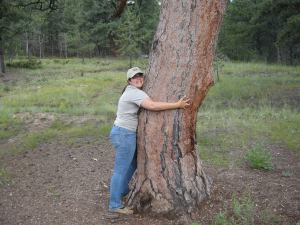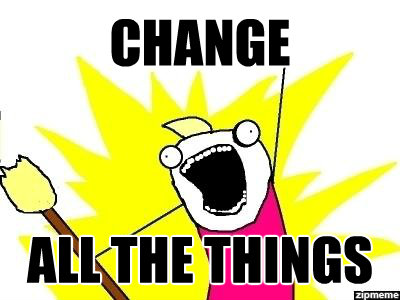When it comes to grad school, I did it all wrong. I didn’t know that I didn’t know everything I needed to know.
I didn’t know that I should find a mentor and do an undergraduate thesis if I wanted to go to graduate school. Most of my friends were engineering or fine arts majors with no intentions of attending grad school. I didn’t know that I was doing it wrong.
When I applied to graduate school I didn’t know that I should directly contact the person I wanted to work with. I thought that applying to grad school was like applying to undergrad: just fill out the application and you’re done. I didn’t realize that the process actually takes months when done correctly. It wasn’t until right before I started my Master’s program that I learned I hadn’t even applied to the correct department. Because I hadn’t contacted faculty, I didn’t know that the website hadn’t been updated and the person I wanted to work with was no longer with that department. One of the first pieces of paperwork I had to submit as a graduate student was a change of concentration form: changing from paleontology (the concentration I wanted) to general biology (the one I didn’t). Because I hadn’t done my research, I was the only paleontologist in a department of microbiologists, ornithologists, and entomologists. On the bright side, my lack of planning introduced me to my current research (which I love).
My biggest mistake was thinking that I could do this alone. It never crossed my mind that I might be doing things wrong; I’m smart and capable, couldn’t I figure it out? Maybe I’m the only person to make this mistake, but I doubt it. Why don’t we let grad school hopefuls know what they’re getting themselves into? If I could have attended a session called “So You Want To Go To Grad School” as a sophomore or junior I wouldn’t have gone into my application blindly. I would have known to contact faculty. I would have known that becoming a full professor was not as simple as I had been led to believe. The graduate school process is hard enough, why not make the necessary information readily available? Sure, this information might be hidden somewhere on a university website, but why not just sit down undergraduates and tell them what’s what? My undergraduate university had resources for applying for industry jobs, but not for entering academia.
For me, it was Twitter that got my act together. If Caroline VanSickle hadn’t answered my question about the difference between a personal statement and a statement of purpose, applications would have been more difficult (I referred back to that tweet all 3 times I applied to grad school. Thanks, Caroline!). Twitter helped me to connect with fellow stressed graduate students and to ask experts questions. Twitter introduced me to my PhD advisor and supplied me with elusive pdfs. I cannot stress enough how helpful Twitter has been for me.
As many mistakes as I have made, I can’t complain too much. Despite not understanding the system, it still treated me fairly well. Even though I just threw an application into the fray without a faculty guide, I was still accepted into a graduate program straight out of undergrad. I learned from my experience and I don’t want others to have to jump through the same hoops I did.






